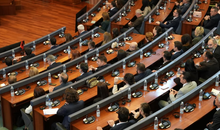
 Flash News
Flash News
Suspected of being murdered, photo emerges of 23-year-old found dead in Shkopet lake
Theth action, resident in tears: I built on my land with my life's expenses, the state should not destroy it
Directors targeted! After Fier and Durrës, Rama arrives in Elbasan
Name/Identification of the 23-year-old found dead near Shkopet Lake
IKM action in Theth, residents come out in protest
Elections in Albania/ VOA: Funding transparency is a concern!

In Albania, there is an open debate on the transparency of sources of financing in elections. Despite the recommendations of several international institutions, this area remains problematic and in some aspects still unregulated by law. The OSCE Ambassador in Tirana, the State Election Commissioner, political representatives and experts in the field told Voice of America that there is still work to be done, especially when it comes to strengthening the role of the CEC, increasing transparency for donations in election campaigns, and legal regulations for the involvement of third parties. These measures, as they say, would serve to stop illegal sources of financing in elections.
In Albania, some steps have been taken forward in regulating the legal framework for financing political parties and election campaigns, but international organizations that monitor electoral processes and experts in the field believe that they are insufficient. After each election campaign, doubts arise related to the accuracy of political party financial reports, the fact that who is behind this financing, how real the donors that parties report to the CEC are, or how effective the rules in force are. The Electoral Code defines four sources of financing for electoral entities: from the state budget, the entity's own income, gifts, loans and credits. Despite the insistence of the OSCE-ODIHR, some recommendations in this context have not yet been addressed. This year's electoral reform, which precedes the 2025 political elections, did not touch on the chapter on financing political parties. In an interview with Voice of America, OSCE Ambassador Michel Tarran expressed regret for this, while highlighting several elements that need to be improved.
"Our ODIHR colleagues have insisted that the CEC's resources must be strengthened because it is not possible now with the resources it has at its disposal to truly control the situation. Secondly, there must be greater transparency in reporting on donations and expenditures during election campaigns and not only after the elections. Thirdly, the legal framework must be improved regarding third parties interfering in the internal political life of Albania," said Michel Tarran, Head of the OSCE Presence in Albania.
The American Democratic Institute also told Voice of America that the role of the CEC needs to be strengthened, as well as legal regulations regarding campaigning by third parties, or in other words, by actors who do not compete in the elections.
“Albania’s electoral legislation lacks regulation for “third party” campaigns. This gap allows actors with questionable sources of funding to influence electoral campaigns by campaigning in favor of or against a particular party or candidate. This allows parties to circumvent the obligation related to the ceiling on election campaign expenses by channeling funding sources through third parties, over which the CEC has no supervisory or regulatory competence,” says the American Democratic Institute, in its written response.
Representatives of the two major political parties, the Socialist Party and the Democratic Party, Milva Ekonomi and Ivi Kaso, tell Voice of America the reasons, according to their perspectives, why the problems of financing elections and political parties were not addressed in the changes that the Electoral Code underwent in the summer of this year.
"The proposals that came from the OSCE-ODIHR and the NDI (American Democratic Institute) for changes to the Electoral Code are changes that go through the Electoral Reform Commission. And we had moments when the commission functioned, then it stopped its activity, then the opposition party sat down with difficulty at the table and a minimalist agreement was reached," says Milva Ekonomi, Secretary for the Program at the Socialist Party.
"We have requested that all ODIHR proposals for the last two electoral processes be discussed. This has not been accepted by the other side, which has refused to address any issues that were not related to the two decisions of the Constitutional Court, the one on the calculation of the distribution of mandates and the one on the diaspora vote," said Ivi Kaso, Secretary for Electoral Affairs at the Democratic Party.
The political elections are expected to be held in May of next year. Ms. Ekonomi and Mr. Kaso believe that the remaining time is insufficient to reflect in the Electoral Code the issues regarding the financing of election campaigns and political parties.
Concerns in this context also come from members of the parliamentary majority. The chairman of the committee on disinformation and other forms of foreign interference in democratic processes, Erion Braçe, told Voice of America that there is a need for transparency when it comes to the financial sources of donors to parties or candidates.
"It is not covered from a legal point of view. So today we do not control the activities of third parties who finance electoral processes. For example, I am a donor to a party. The problem we have is that I do not declare, the party declares for me and I do not declare the source of my income. You have heard those who say we collect so much money from donations that come from within and from abroad. This is the concern. This must be urgently regulated before these elections. Otherwise, the river of money that flows into the electoral campaign will have no limit," says Mr. Braçe.
On the other hand, the American Democratic Institute notes with concern that "the issue of self-financing of candidates remains unregulated by law, creating advantages for candidates with greater financial opportunities over those with fewer financial opportunities."
In an interview with Voice of America, State Election Commissioner Ilirjan Celibashi, although he admits that there is progress in the declaration of sources of funding in elections, again says that this process is formal.
"We must admit that we are in the formal framework of this process. Parties and candidates report what they want to report, and we simply evaluate those who have reported, but we have few opportunities and mechanisms to verify in depth how much money the parties receive and how they have spent this money. We have tried to cross-check information, so whether this donor has the capacity to give this money or not. This process should be more regulated in terms of law and the CEC should have more competence to verify the donor as well" - argues Mr. Celibashi.
Following the denunciations of the organization "Civic Stability" to the CEC, for the 2023 local elections, 20 officials were fined for using state resources in the campaign. The electoral code provides for sanctions against parties and donors for violating campaign financing rules, which include fines of up to 5 million lek and suspension of public financing of a political party for up to five years, but what worries not only the leaders of this organization is the fact that the sanctions regime is too weak to be compelling.
"There have also been fines of less than 25 euros, less than the cost of a trip from a city to Tirana for a candidate or official. What we have thought about in the upcoming elections is to put the prosecution in motion. There are specific articles in the Criminal Code for the misuse of public resources in elections. We are in communication with SPAK, for senior officials, but also with district prosecutors for other levels, and we will address any identification we have to these institutions," says Rigels Xhemollari, Director of "Citizen Stability".
On the other hand, experts also note that the issue of financing online election campaigns remains completely unregulated by law.
"A specific law is required for online media to be regulated, so that shadow money from third parties, who are not required by law to declare their funding, can provide money that taints the electoral process," says Gerta Meta, Executive Director of the Association for Democratic Culture.
But Mr. Celibashi says that regarding the financing of election campaigns that take place online, the CEC has taken an initiative.
"As an institution, we are seeing the opportunity to build a unit that will deal specifically with monitoring online media, and to cross-check what is reported as spending by electoral entities with what we actually verify. This also requires the engagement of social platforms, while the issue of portals is in complete chaos," continues Mr. Celibashi.
Experts have consistently raised concerns that informal financing, mainly in areas with active criminal groups, could even affect the outcome of the elections.
"Criminal groups, as we have seen from the scandals, have large undeclared financial assets and their interest is to have their people at decision-making levels. Our current legislation does not prevent this, it does not investigate, even if there are indications from media reports or elsewhere, it does not use this as sufficient evidence to proceed with the investigation," says Afrim Krasniqi, Executive Director of the Institute of Political Studies.
The OSCE ambassador also expressed concern about the financing of candidates in election campaigns by the criminal world, describing this as a threat to democracy.
"It is not in Albania's interest for criminal underworld candidates to come to power. And unfortunately there are various interests here that are against the interests of the country. This harms democracy, and that is why as an organization we are so committed, because our main goal is to strengthen democracy in Albania. And it is clear that if unwanted grey actors interfere in the elections, this goes against the interests and democracy in Albania," says Michel Tarran, Head of the OSCE Presence in Albania.
The problems of financing election campaigns and political parties are challenges even for developed Western countries, but experts note that in countries like Albania with fragile democracy, high informality, circulation of gray money in the economy, and increasing efforts by the criminal world to penetrate political and parliamentary decision-making, these challenges are even greater./ VOA
Latest news

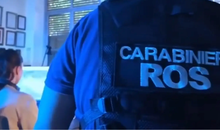

The head of the Rinas police station is reconfirmed in office
2025-07-09 11:25:03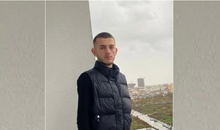
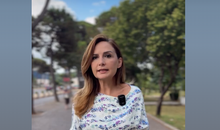
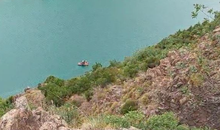
Found dead in Shkopet Lake, 23-year-old has injuries to his throat
2025-07-09 10:41:39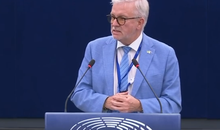
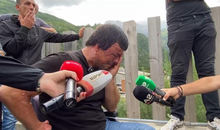

Hoxha: We will have a parliament that will surpass any comedy program!
2025-07-09 10:10:32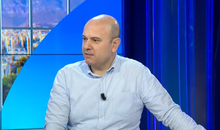
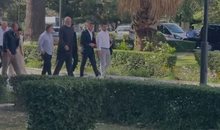
Directors targeted! After Fier and Durrës, Rama arrives in Elbasan
2025-07-09 09:53:57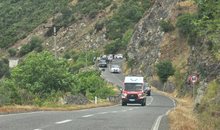
Name/Identification of the 23-year-old found dead near Shkopet Lake
2025-07-09 09:42:34
IKM action in Theth, residents come out in protest
2025-07-09 09:34:54
Reasons why the EU has not imposed new sanctions against Russia
2025-07-09 09:18:35
DW: Online scams increase human trafficking
2025-07-09 09:01:29

Reported missing by his father, 23-year-old found dead near Shkopet lake
2025-07-09 08:42:13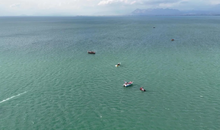

Horoscope, what do the stars have in store for you today?
2025-07-09 08:25:44
Sun and rain, Wednesday with unstable weather
2025-07-09 08:06:58
Posta e mëngjesit/ Me 2 rreshta: Çfarë pati rëndësi dje në Shqipëri
2025-07-09 07:52:02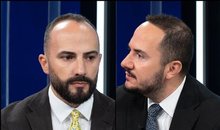
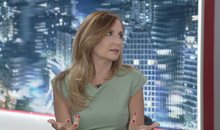
Tabaku: Salianji bore a political cost that no one in Albania has borne
2025-07-08 22:36:15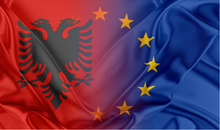


Sekretet për të shijuar verën si një ‘profesionist’
2025-07-08 21:45:06

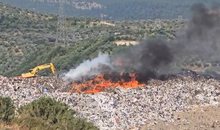
Albania's Waste Crisis: Toxic Smoke and Deep Governance Problems
2025-07-08 21:13:07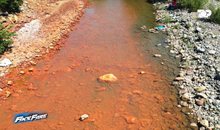
Alarming pollution in Fushë-Arrëz, copper factory waste turns the Fan River red
2025-07-08 21:07:14

Poll/ How do you assess the Prime Minister's intervention in local government?
2025-07-08 20:40:01
28 arrested in Italy and Spain for drug trafficking, including an Albanian
2025-07-08 20:24:14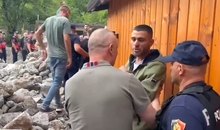
Residents clash with police in Theth: We are on our land
2025-07-08 20:11:41
Death of 27-year-old in Lipjan, Osmani: To be investigated independently!
2025-07-08 20:06:52
Trump promises US will send more weapons to Ukraine
2025-07-08 19:54:25
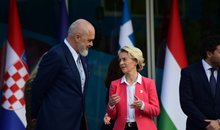
EU targets health, education, police and cadastre as areas of corruption
2025-07-08 19:23:34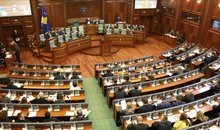
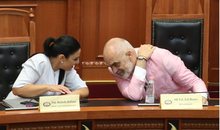
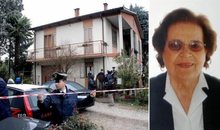
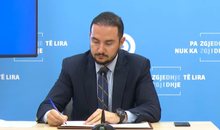

Salianji after his return: I did not oppose for functions, but for vocation
2025-07-08 18:23:15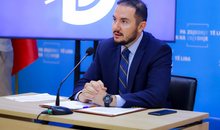
Will he run in the 2029 elections? Here's how Salianji answers
2025-07-08 18:16:09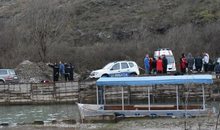
Boat captain drowns after diving into water to save two tourists in Shkodra
2025-07-08 18:05:12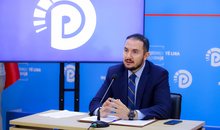
Salianji from the DP headquarters: I brought a drug trafficker to justice
2025-07-08 18:03:26
After Fier, Rama "landes" in Durrës, dismissals expected
2025-07-08 17:53:32
Ervin Salianji arrives at the blue headquarters, welcomed by supporters
2025-07-08 17:45:12
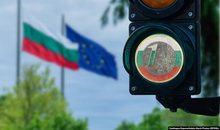
EU approves final steps for Bulgaria's Eurozone membership
2025-07-08 17:43:06

Zhupa after Salianj's release: Inspiration for every opposition member
2025-07-08 17:19:39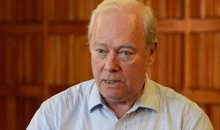
Actor David Killick passes away
2025-07-08 17:09:23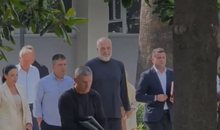
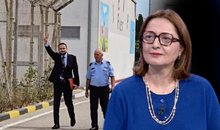

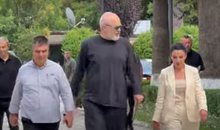
Threatened with dismissals, Rama arrives at the Fier municipality
2025-07-08 16:39:19
Extreme temperatures temporarily close Acropolis in Greece
2025-07-08 16:30:34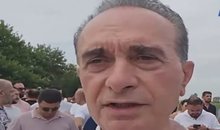

A plot of cannabis is discovered in Mazha, Kruja
2025-07-08 16:13:48

Republika Srpska allocates additional 22 million euros for lobbying in the US
2025-07-08 15:52:04

Spices that protect you from mosquitoes!
2025-07-08 15:30:03

Accident on the Vlora-Qeparo axis, one injured
2025-07-08 15:11:52
Berat, 17 years part of UNESCO's world heritage
2025-07-08 15:03:30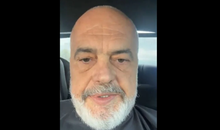
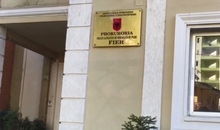

Cost of living increases, inflation rises to 2.4% in June, driven by food
2025-07-08 14:29:54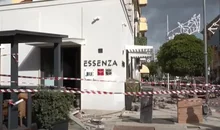
VIDEO/ Restaurant roof collapses in Italy, one victim and ten injured
2025-07-08 14:18:44
Requested release from cell, Supreme Court leaves Veliaj in prison
2025-07-08 14:07:41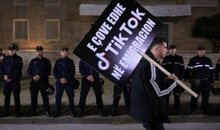
TikTok shutdown/ Austrian media: Rama benefited politically from the app ban
2025-07-08 13:48:25
Acropolis temporarily closed due to heat
2025-07-08 13:31:09
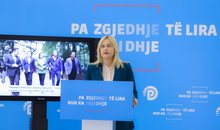
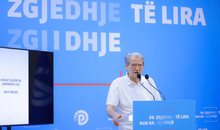
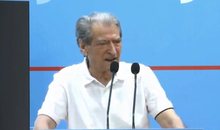
Salianj's release/Berisha: He was politically condemned by Rama and Xhafa!
2025-07-08 13:00:13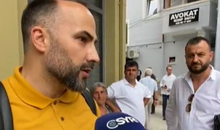

Knife attack on Peshkopia Boulevard
2025-07-08 12:44:10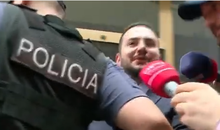
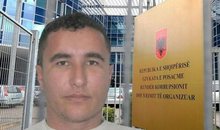
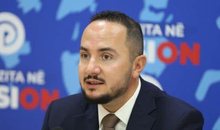
Fier Court decides on the conditional release of Ervin Salianj
2025-07-08 12:15:23
Cost of living increases, inflation rises to 2.4% in June due to food
2025-07-08 12:00:16
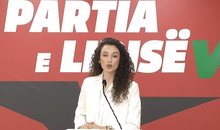
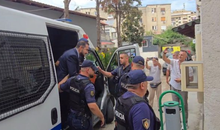
Requesting conditional release, Ervin Salianji arrives at the Fier Court
2025-07-08 11:16:36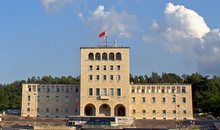
The first phase of university applications begins today
2025-07-08 11:10:52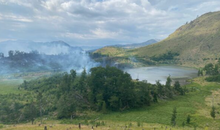
Fire in Lura, flames endanger the National Park
2025-07-08 10:53:43
Trump warns of 35% tariffs on Serbia and 30% on Bosnia and Herzegovina
2025-07-08 10:37:32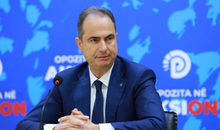
Thethi rooster and the dung cock
2025-07-08 10:24:01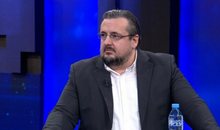

Fire in Dukat endangers Llogara National Park
2025-07-08 10:01:39
International drug search: 36-year-old arrested in Durrës (NAME)
2025-07-08 09:50:48
Thethi, tourists "criticize" modern trend
2025-07-08 09:39:54
Fire on Mount Dukat still active, Llogara National Park at risk
2025-07-08 09:28:12
Veliaj's appeal to be heard today in the High Court
2025-07-08 09:16:02
"Bad sign for democracy"/ Parliament neglects reporting by institutions
2025-07-08 09:04:56
Today's hearing at the Fier Court, Salianji requests conditional release
2025-07-08 08:56:39
